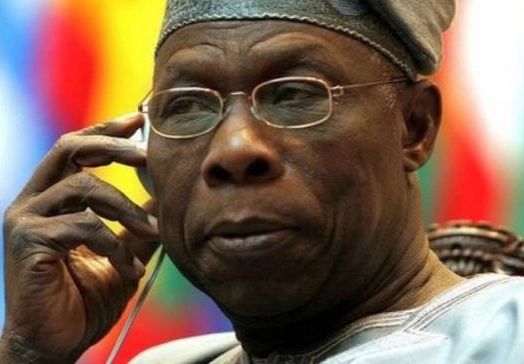
A former Chief of Army Staff, Lt.-Gen. Ishaya Bamaiyi, has shed light on the strategy allegedly deployed by former generals to ensure the emergence of a former military Head of State, Gen. Olusegun Obasanjo, as the country’s president in 1999.
Bamaiyi’s new book, Vindication of a General, claimed that ex-Head of State, Gen. Abdulsalami Abubakar (retd.), who was in power at the time; former military dictator, Gen. Ibrahim Babangida; ex-Minister of Defence, Gen. Theophilus Danjuma (retd.); and a former National Security Adviser, Gen. Aliyu Gusau, developed and executed the plan that helped Obasanjo to return to power as a civilian president in 1999.
The former army chief, who was detained for years during the Abdulsalami regime, attributed his travails to his opposition to Obasanjo’s candidacy and his support for the Alliance for Democracy’s presidential candidate in 1999, Chief Olu Falae.
He further revealed that the plot to return Obasanjo to power started shortly after Abdulsalami got into power. He alleged that Abdulsalami, on becoming the head of state, started holding secret meetings with Babangida and Gusau, on the future of the country.
He stated, “Unknown to me, Gen. (Abdulsalami) Abubakar had already committed himself to Generals Babangida, T.Y.Danjuma and Aliyu Gusau on General Obasanjo’s coming in to take over from him. A proposal I totally objected to, which I told Generals Abubakar, TY Danjuma and Aliyu Gusau in very clear terms. My stand did not go (down) well with the generals and General Abubakar started feeling unsafe.”
He stated, “He (Abdulsalami) was supported by some northern generals, who believed one of them would take over from Obasanjo after one term of four years. It was alleged that Obasanjo had promised Gen. Babangida that he would succeed him.”
To buttress his claim, the Bamaiyi said, “General Abubakar prepared and handed over his (handover) report to Gen. Obasanjo’s team, dated June 1998. This means that he prepared the report as soon as he was sworn in as the commander-in-chief in June 1998.”
Bamaiyi noted he insisted on Falae when he discovered that those who annulled June 12, 1993 election wanted to ‘arrange’ a president for the South-West.
“I decided to take Chief Olu Falae to Gen. Abubakar and only Abubakar and I discussed this issue. I do not regret that action because I was and I am convinced Falae would have done better as president of our great country.
I am glad those behind Obasanjo knew (sic) better,” he said on page 120 of the book.
Bamaiyi said the entire plot was mooted by Babangida who was desperate to return to power. Bamaiyi stated, “This was not done because they liked Obasanjo, but because of the ambition of General Babangida to return as president after Obasanjo’s tenure.
“I believe that they saw Obasanjo as a political novice they would manipulate. They never thought they would meet a different Obasanjo from the one they had known in 1979.”
He added that Gusau and Danjuma put pressure on him to support Obasanjo, but he told them that Nigerians were tired of military rule.
“When I discovered that some people were pushing for a president from the South-West, I asked a friend, Dr. Frank Adejuwon, a minister in the Abacha cabinet, to contact Chief Falae and bring him to Abuja.
“I took Falae to Gen. Abubakar and told him that Falae was a very good candidate, if the presidency had to go to the South-West. I believe Gen. Abubakar briefed Obasanjo, which led to an unforgiving Obasanjo developing actual hatred as far as I am concerned.”
On page 125, however, Bamaiyi also revealed that his support for Falae was a last resort. He pointed out that narrowing the search for the next president to the South-West did not make sense to him.
He stated, “When Gen. Abukakar took over, he and I had a discussion about the military and how Nigerians hated it. We agreed we should make a clean break by ensuring the next president would be someone without a military background.
“I was later told that for some reasons, others involved wanted someone from the South-West, which did not make any sense to me. I stood for an open election for Nigerians to decide who ruled them.”
Meanwhile, a lawyer of former President Olusegun Obasanjo, Dr. Tunji Abayomi, said the ex-president had assured him that he had no hand in an alleged coup attempt against Abacha.
Abayomi, who spoke to Punch in a telephone interview, noted that Obasanjo had said this after he challenged the former president privately.
The lawyer said, “In his room, it was only two of us and I confronted him. Then he told me that he didn’t know anything about it.”







